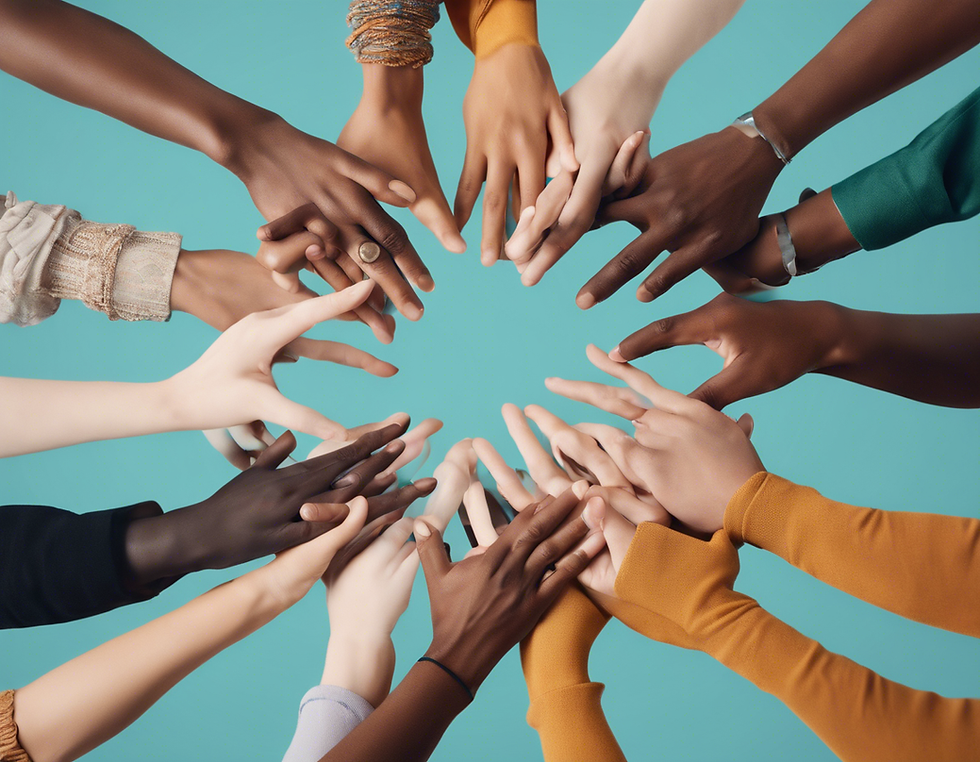Why Culturally Inclusive Therapists Are Needed for the Gypsy, Roma and Traveller+ Community
- rebeccawilde
- Nov 24, 2024
- 2 min read
Updated: 6 days ago
The Gypsy, Roma, and Traveller+ communities in the UK face unique challenges that make culturally inclusive therapy not just important, but essential. These communities often experience systemic discrimination, social exclusion, and limited access to healthcare, including mental health services. To bridge this gap, therapists who are culturally competent - and ideally, part of the community themselves - can provide the tailored support needed to address these barriers effectively.

Barriers to Mental Health Access
Research shows that Traveller+ communities face disproportionately high rates of anxiety, depression, and suicide. Men are seven times more likely to die by suicide compared to the general UK population, and women face rates six times higher than the national average. This is compounded by daily experiences of racism and discrimination, which contribute to deep-seated mistrust of institutions, including mental health services. Without culturally inclusive therapists, many Traveller+ individuals hesitate to seek help for fear of being judged or misunderstood. Non-inclusive environments may inadvertently perpetuate the stigma and alienation they already face.
The Role of Representation
Representation matters. A culturally inclusive therapist - someone who understands the heritage, values, and lived experiences of Traveller+ individuals - offers a safe and empathetic space. This is especially impactful when the therapist is from the GRT community. Such representation reduces the cultural disconnect between therapist and client, fostering trust and encouraging individuals to engage with mental health services.
Rebecca Wilde, a GRT mental health advocate and founder of The Gypsy, Roma and Traveller Therapists Network highlights this need: "Cultural competency is crucial, but representation goes further. A therapist from the community can bridge the cultural gap, allowing clients to explore their concerns without having to defend or explain their identity." This highlights the importance of Traveller+ led initiatives in mental health
Addressing Cultural Nuances
Culturally inclusive therapists bring an understanding of traditions and values unique to communities, such as the significance of family, oral storytelling, and the central role of cultural practices like fire in fostering connection. A therapist with this knowledge can better navigate culturally specific trauma, identity struggles, and issues related to "passing" or concealing ethnicity for fear of discrimination.
Breaking the Cycle of Exclusion
The lack of Traveller+ therapists perpetuates a cycle of exclusion. By increasing the number of practitioners with lived experiance, the mental health field can become more accessible and welcoming to Traveller+ clients. These therapists serve as role models within their community, showing that mental health support is both available and safe.
The Path Forward
Efforts like The Gypsy, Roma and Traveller Therapists Network aim to create a platform for Traveller+ professionals to connect, support one another, and advocate for culturally inclusive practices. Such initiatives signal to Traveller+ individuals that mental health care can be respectful, understanding, and effective.
In conclusion, culturally inclusive therapists are vital for addressing the unique needs of the community. By breaking down barriers of mistrust and discrimination, these therapists provide a bridge to better mental health and a stronger, more inclusive society.



Comments